The NSW Police Force is committed to ensuring the safety and wellbeing of all members of the community by providing policing services that are available and accessible to all.
Part of this commitment is providing services and programs that are tailored and responsive to the needs of LGBTIQ+ communities.
The LGBTIQ+ Liaison Officer Program was established in 1990, to ensure the delivery of a professional, non-discriminatory, and an accessible policing service for the Gay, Lesbian, Bi-sexual, Transgender, Queer, Intersex, and other sexually or gender diverse (LGBTIQ+) communities within NSW.
LGBTIQ+ Liaison Officers, also referred to as GLLOs, are specialist officers who work together with their local LGBTIQ+ communities, to develop and deliver an effective response that is sensitive to the needs of all sexuality and gender diverse people.
The NSW Police Force is dedicated to supporting LGBTIQ+ communities and takes pride in its role as a community leader for inclusion and diversity.
The NSW Police Force actively participates in key annual community events such as International Day Against Homophobia, Biphobia and Transphobia, Wear it Purple, Transgender Day of Awareness and the Sydney Gay and Lesbian Mardi Gras.

Community Safety Tips
Community Safety Tips
The New South Wales Police Force treats all reports of hate motivated crime seriously and encourages all members of the LGBTIQ+ and broader community to report any incidents.
Hate crimes are motived by prejudice on the basis of race, sexual orientation, religion and often involve violence.
During periods of high visibility of the LGBTIQ+ communities, there is the potential for an increased risk of abuse and even violence.
Be sure to report any anti-social and violent behaviours to the police immediately or as soon as you possibly can.
Harm to the victim and the community
Hate crimes not only harm an individual but their community and society as a whole. It does not matter how big or small a crime may be perceived; it has the capability to significantly alter someone’s life.
Homophobic or transphobic hate crimes can be one of the most traumatic experiences in a person’s life, as they are often victimised for characteristics which are intrinsic and unchangeable, and the repercussions of the crime can be felt throughout the entire community.
If you see something, say something – make sure you report the incident to police.
Reporting Crime
Hate Crime can happen to anyone. Hate is prejudice or bias towards people because of their identity or perceived difference. When a crime is motivated by hate, it becomes a hate crime.
When a crime is occurring the best thing to do is to call Triple Zero (000) and get help immediately. If it's not urgent, you can report in person to any Police Station.
LGBTIQ+ hate crimes are under reported. It is not uncommon for a victim of this type of crime to not report the matter to police and there are a variety of reasons for this, including:
- Fear of reprisals,
- Mistrust of police,
- Fear of being "outed" as a result of participating in the court process, and/or
- The perception that the incident is not serious enough to report to police.
To assist all officers to understand the challenges and expectations of LGBTIQ+ communities the NSWPF has a network of LGBTIQ+ Liaison Officers across the state. LGBTIQ+ Liaison Officers are also active in their local communities to ensure open communication and exchange of information for the benefit of the local community. Over time these relationships should lead to improved confidence by LGBTIQ+ communities in the police. This in turn should lead to improved rates of reporting of crime and violence.
To assist all officers to understand the challenges and expectations of LGBTIQ+ communities the NSWPF has a network of LGBTIQ+ Liaison Officers across the state. LGBTIQ+ Liaison Officers are also active in their local communities to ensure open communication and exchange of information for the benefit of the local community. Over time these relationships should lead to improved confidence by LGBTIQ+ communities in the police. This in turn should lead to improved rates of reporting of crime and violence.
Sexual Assault Reporting Option (SARO)
If you have been a victim of an assault – physical, sexual, verbal – there are services available. Police officers can come to you and assess any urgent safety and medical needs. In an emergency, please call Triple Zero (000).
Please be aware you can report your sexual assault to police even if you do not want an investigation started. It simply provides a record of what happened, which can be used if you change your mind later.
See more options and support here: https://portal.police.nsw.gov.au/adultsexualassault
In NSW, we have affirmative consent laws. This means people in NSW are required to give and obtain consent before they engage in a sexual act.
Sexual consent is when people freely and voluntarily agree to engage in sexual activity, including kissing, touching and oral sex. It’s about making sure everyone is comfortable with what’s happening and freely choosing to say yes.
Find out more here: https://www.nsw.gov.au/family-and-relationships/make-no-doubt
Printable Resources
LGBTIQ+ Support Agencies
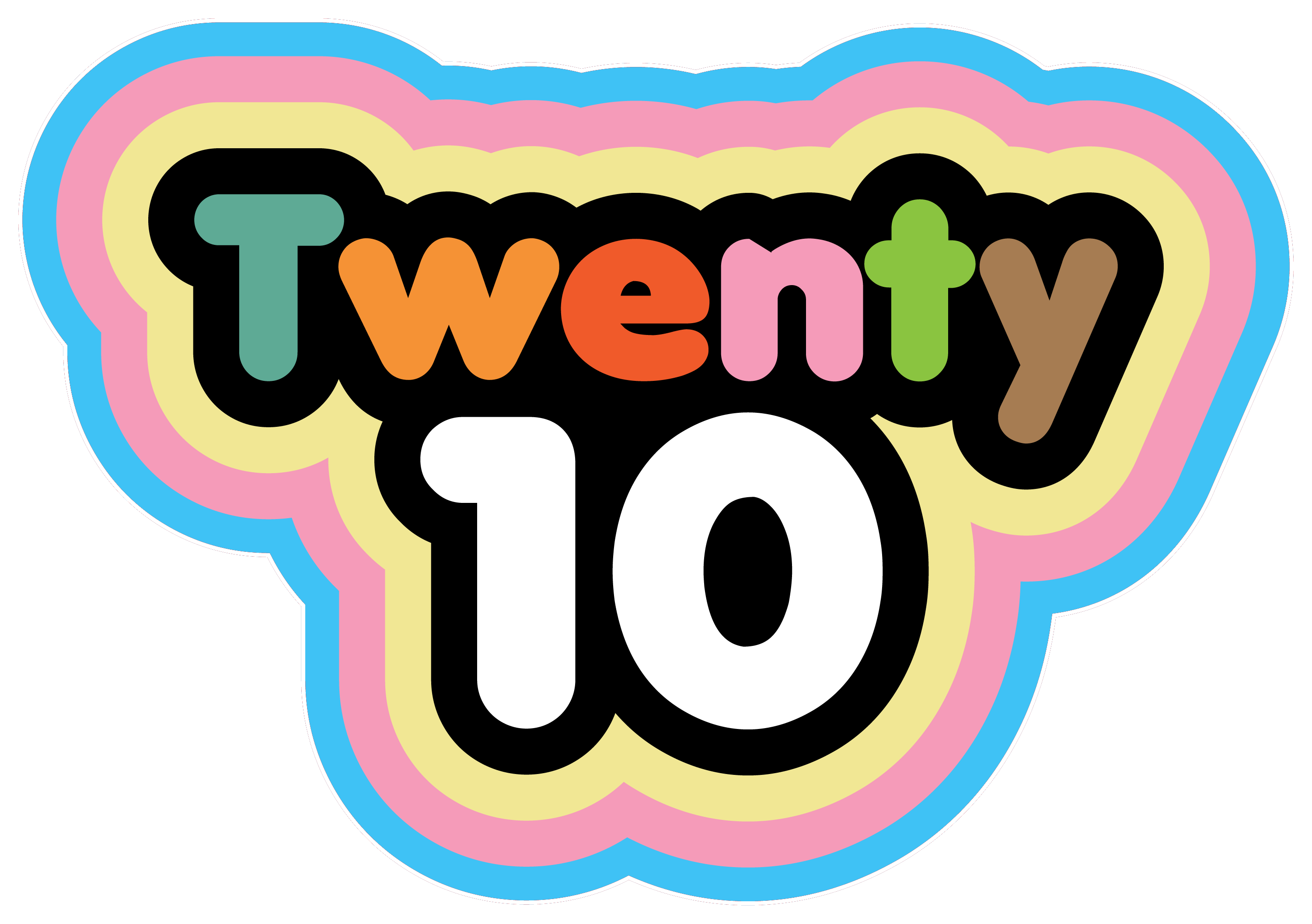
Twenty10
(02) 8594 9555
https://twenty10.org.au/ 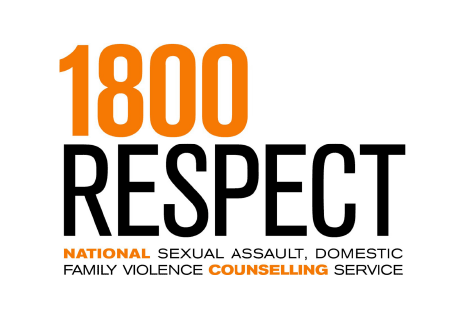
1800Respect
1800 737 732
https://www.1800respect.org.au/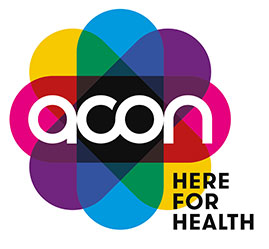
ACON
(02) 9206 2000
https://www.acon.org.au/![]()
Lifeline
13 11 14
https://www.lifeline.org.au/
Qlife LGBTIQ Counselling and Referral Service
1800 184 527
https://qlife.org.au/
NSW Sexual Health Info
1800 451 624
www.shil.nsw.gov.au
Beyond Blue
1300 22 4636
www.beyondblue.org.au
Emergency Contacts

Triple Zero
In the case of an emergency.
000![]()
Police Assistance Line
For non-emergencies.
131 444
![]()
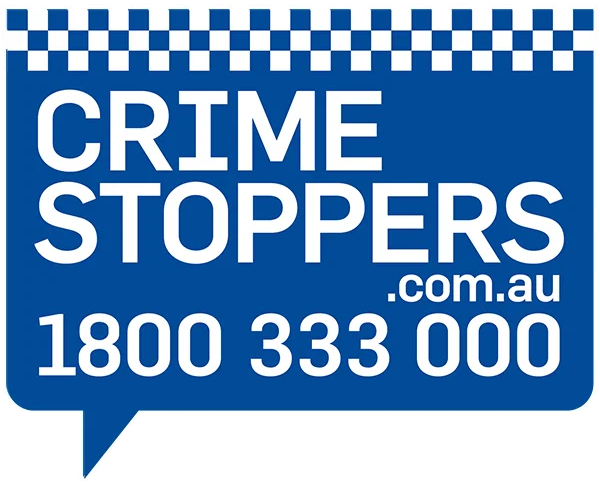
Crimestoppers
Report crime anonymously.
1800 333 000
![]()
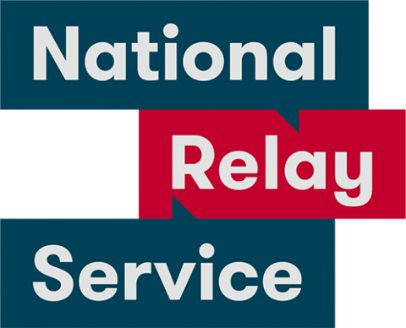
National Relay Service
Text based emergency service for people who are deaf or hard of hearing.

The Emergency+ App
A free app developed by Australia’s emergency services and their Government and industry partners.
The app uses GPS functionality built into smart phones to help a Triple Zero (000) caller provide critical location details required to mobilise emergency services.
Sexual Assault Reporting Options
Allows survivors the opportunity to report the full circumstances of their assault anonymously and decide the level of police involvement.
Further information and online reporting options can be found on the NSW Police Force website: https://portal.police.nsw.gov.au/
NSW Police Force apologises to the '78ers
NSW Police Force apologises to the ‘78ers
In 2016, a formal apology was delivered to the ‘78ers’ by former Corporate Sponsor for Sexuality, Gender Diversity and Intersex, Deputy Commissioner Tony Crandell.
The apology acknowledged the pain and hurt caused by police actions during the first Mardi Gras in 1978.
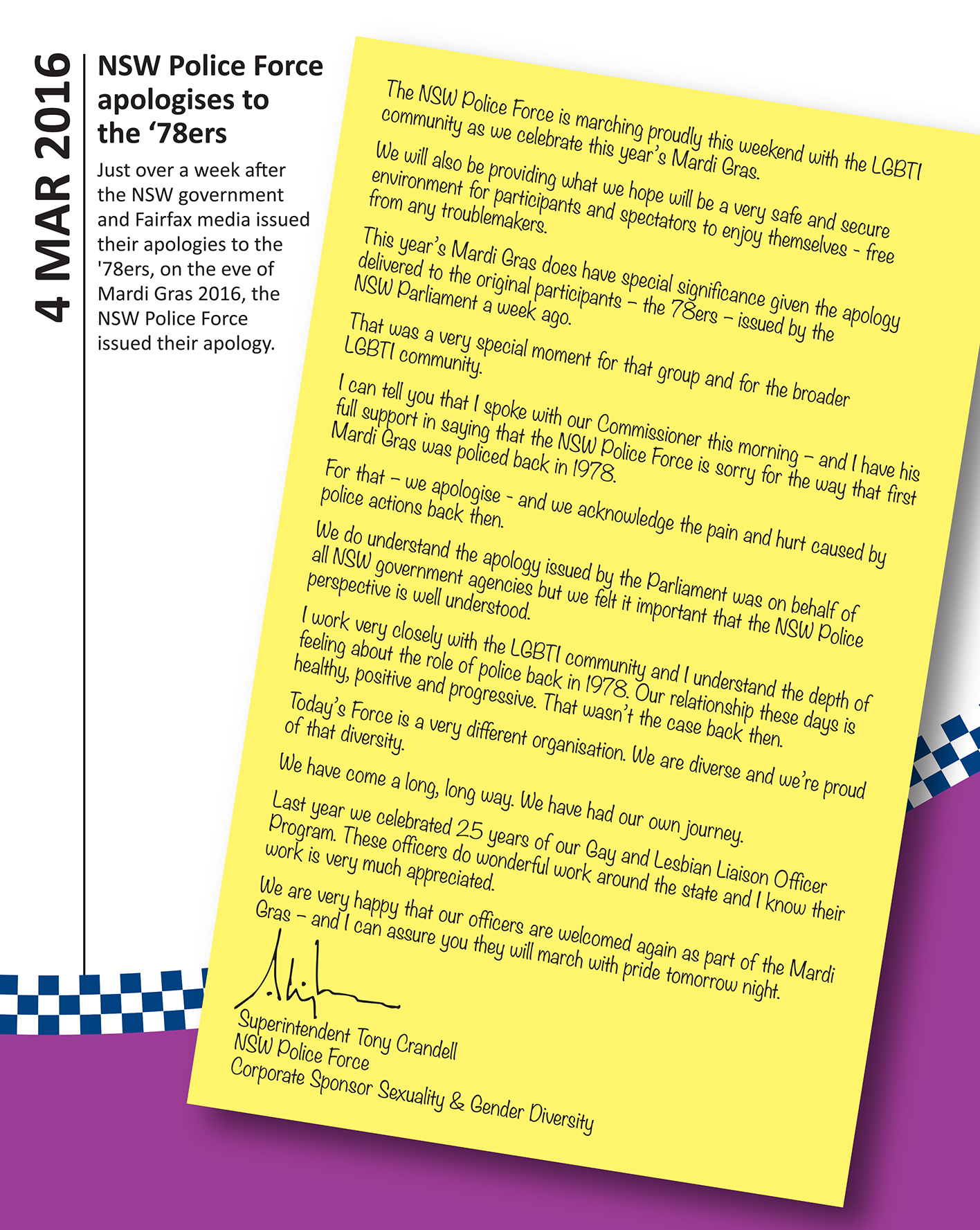
Former Corporate Sponsor for Gender, Sexuality diversity and Intersex Assistant Commissioner Gelina Talbot took as walk down Sydney's Oxford Street with ‘78er Peter Murphy to chat about the importance of Mardi Gras and the role police can play today.

